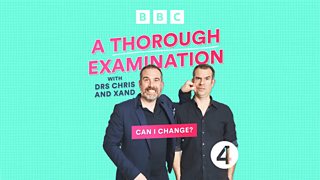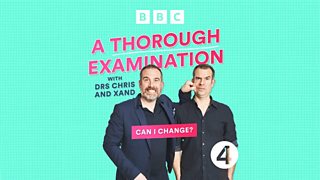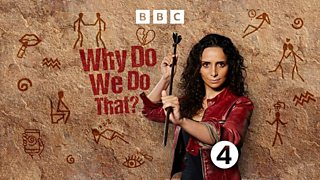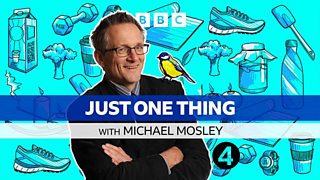Can people really change?
In the second series of 大象传媒 Radio 4’s A Thorough Examination with Drs Chris and Xand, the van Tullekens explore whether people can change and how they do it. How much of our personality is genetic and how much are we shaped by the world around us?
Over eight episodes the twins speak with psychologists, geneticists, neuroscientists and many others about whether change is possible and if so how to do it. Chris van Tulleken explains the findings…
I’ve had a nearly exact genetic copy of myself wandering through the world for my entire life. My identical twin brother, Xand, and I come from a single sperm and a single egg. Whilst there will be a few minor differences in our genetic code (the chemical labels that are attached to it and some random mutations) we are, in terms of our DNA, essentially indistinguishable. A paternity test would show that my daughters are his and that his son is mine.
For almost any human characteristic that鈥檚 ever been studied, both nature and nurture play a role. And that means that, at least in theory, there is the opportunity to change.
As clones of each other, twins provide an opportunity for science to establish the varying roles of nature and nurture in shaping who we become physically and psychologically. Is our destiny handed to us at birth in a few strings of DNA, or are we a piece of clay to be shaped by the world around us, our environment?
Twin studies
The basic idea of a twin study is this: you take any characteristic you want; weight, eye colour, personality and so on and ask – are identical twins more similar to each other than non-identical twins? If they are, then you know that genes must be involved in determining that characteristic because (one assumes) both types of twin share a very similar environment.
For almost any human characteristic that’s ever been studied, both nature and nurture play a role. And that means that, at least in theory, there is the opportunity to change, to decide we can become someone else, someone better (and I’ll set gently to one side for the moment the question of whether we should just accept ourselves for who we are).
Change is the subject of the second series of A Thorough Examination and also the subject of every argument I’ve had with my brother for the last 44 years. He is my best friend but we fight bitterly and frequently and it is mainly this I’d like to change. But as well as improving my relationship with my brother I have a nagging feeling that I could also be a better son, father, husband and doctor. And to become better seems to require deep psychological change – but is that possible?
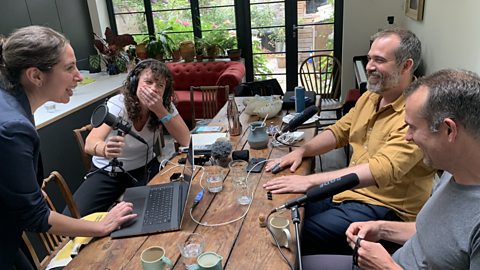
"When he get's angry that makes me angry... and that is a physiological thing."
Chris and Xand talk to Professor Sarah Garfinkel to learn about their connection.
Does birth order shape who we are?
We all know the stereotypes: eldest children are anxious overachievers. Middle children are reserved and forgotten. The youngest are always showing off, clowning and vying for attention. My wife and my other brother (J) are both the youngest of three and conform precisely to these stereotypes. And some observations play into these ideas: it was noticed in the 19th century that first-borns were over-represented among successful scientists and Nobel Laureates. But is it backed up by the data?
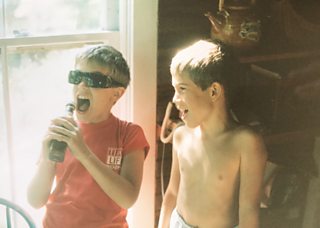
According to psychologists there are five major domains of personality: extraversion, neuroticism, conscientiousness, agreeableness, and openness to new experience. It might seem astounding that you can reduce a person to these dimensions, but they do predict life outcomes. For example, people who are less conscientious are more likely to die earlier. All the more reason to change if you, like me, are not quite as conscientious as you’d like.
But the data reveals something surprising. Birth order has, in fact, no effect on personality and the team that did the studies was extremely careful in analysing huge data sets in almost every possible way. The result is robust: being the youngest does not make you more extrovert.
So what’s going on?
It's likely that we develop our impression of our siblings as we grow up. My opinion of my own younger brother as a childish show-off was formed when I was eight and he was five. He’s now a successful film director and literally no one else thinks of him in this way (apart from Xand).
The improved chances of the eldest winning a Nobel Prize are likely because they simply get a little more parental investment. My eldest daughter had three years of being the sole focus of attention. By the time her sister arrived Dinah (my wife) and I had to split our attention and of course our money.
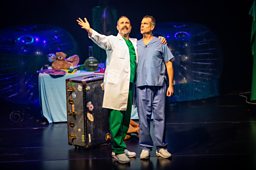
Can we change?
Where does this leave us with whether we can change? The truth is that siblings generally have a fairly similar environment. My daughters are growing up in the same house and so differences between them are likely to be mainly genetic. But other data is clear that much of who we are is determined significantly by the world around. Reason for hope, then? The problem is that changing the world around us isn’t easy. Our genes are not our destiny, but much of who we are is shaped by the circumstances of our birth. And so making those circumstances better for as many people as possible is an urgent challenge to governments and policy makers. For people to cycle they need cycle routes. For children to be healthy they need clean air and affordable, nutritious food.
I don't want to lean into the self-help industry here because the solutions it offers seem to have scant evidence to support most of them, but if you want to change, the podcast will show you that it requires just three important factors.
First, motivation. Do you really want to change? Do you need to? Or is it just something everyone else is pushing you to do? If you do want or need to change, well, that's motivation taken care of.
Next, you may have to find some expert help. It might be a social worker, it might be a doctor, or it might be a wise friend or relative. But almost everyone needs help.
The final ingredient is cautious optimism. Change is always hard because the structure of our local world constrains us so tightly. But, as we learned from many of our contributors who turned their lives around even in times of absolute crisis, it is possible.
But that possibility should never distract us from making the world a fairer more equal place, where fewer people feel that they need to change in the first place.
Find out if Chris and Xand can change – listen to all eight episodes on 大象传媒 Sounds now.
More from 大象传媒 Radio 4
-
![]()
A Thorough Examination with Drs Chris and Xand
Drs Chris and Xand van Tulleken explore if people can change and how they do it.
-
![]()
A Thorough Examination - Addicted to Food
Chris and Xand van Tulleken are doctors, scientists and identical twins - except that Xand is clinically obese.
-
![]()
Why Do We Do That?
An anthropologist's guide to the modern world. Ella Al-Shamahi investigates the origins of everyday human habits and behaviour.
-
![]()
Just One Thing
Michael Mosley reveals surprisingly simple tips that are scientifically proven to change your life.
